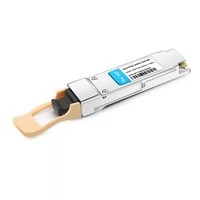As the technology for data centers has changed, so has the demand for greater bandwidth and transmission of data. The Mellanox MMA1T00-HS, which is a 200G QSFP56 optical transceiver, is a breakthrough in the field of connectivity as it offers a powerful solution for new-age network systems. This is a practical guide intended to describe the technical configurations and functions of the system, namely the Mellanox MMA1T00-HS, and its advantages to practitioners’ knowledge in scope and application. Looking into some features, such as data transfer rate and data transceiver power consumption, this article will focus on low-cost options for IT professionals who are looking to improve the performance of their networking.
What Are the Key Specifications of MMA1T00-HS?
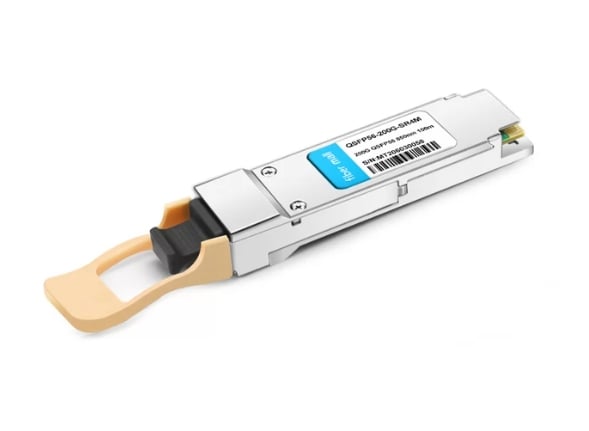
The Mellanox MMA1T00-HS is a 200G QSFP56 optical transceiver providing a maximum data rate of 200 Gbps. The transceiver’s range reaches 2 kilometers using a multimode fiber with a 4-lane parallel electrical interface. The device uses 850 nm wavelength and is considered energy efficient as the average power required for operation is about 4 W. The transceiver is also compliant with QSFP-DD MSA specifications and is able to support different bandwidth Ethernet applications and performs efficiently in contemporary network systems.
Understanding the 200G QSFP56 Transceiver
The QSFP56 200G transceiver, particularly the Mellanox MMA1T00-HS, provides a high density and high throughput solution inherently designed for the requirements of modern data centres. Advanced networking solutions are provided with this transceiver with the aim of improving data flow in large network systems.
- Structure and Composition: There are four lane parallel structure in the QSFP56 module. PAM4 modulation is used and each lane can support 50 Gbps data rate for a total of 200 Gbps thereby maximizing throughput and minimizing latency.
- Operational Attributes: This module is designed for low power may be in the region of about 4 W which enables data centre operations to be more energy efficient. This particular characteristic significantly helps to reduce the running cost without compromising quality or standards.
- Data Transmission: The transceiver 200G QSFP56 operates best at short reach optical links up to 850 nm. Such characteristics makes the transceiver suitable for use within the data centre with a reach of not more than 2 kilometers when using OM4 multimode fiber.
- Compatibility and Performance: The transceiver is also compliant to a number of parameters as set out by the QSFP-DD MSA which also makes it compatible with a wide range of networking hardware. High performance is maintained and makes the transceiver suitable for use in high speed ethernet, data centre interconnects and cloud computing networks.
This advanced optical module is crucial for modern IT companies, allowing them to reach high-performing and environmentally friendly networking goals.
Exploring the 850nm Wavelength and 100m Range
Predominantly, the 850 nm wavelength operates in short-reach fiber optic transmission systems, including data centers and local area networks (LAN). This wavelength is part of the infrared frequencies that allow the transmission of data over OM3 and OM4 multimode fibers up to a distance of 100 meters. This wavelength is preferred because of its low attenuation and less dispersion features, which enhance the high bandwidth capacity needed for the flow of data, as evidenced by recent information from top industry sources. The small size and affordability of the components that work at this wavelength make them applicable in high-density deployments, which saves space and ensures good network performance. This diversity across networking environments opens up the importance of 850 nm wavelength in today’s optical solutions.
Main Features of MMA1T00-HS Optical Transceiver Module
The MMA1T00-HS Optical Transceiver Module has been designed with several features in order to enable effective communication within the network. One of its major features is the ability to transmit 10 Gbps of information which allows for optimum data transactions to occur in a quick manner. It is designed for use with multimode fiber and is operative at 850 nm wavelength, which is suitable for low-distance communication of about one hundred meters. It also has a small form-factor pluggable (SFP+) design which increases its adaptability in a variety of networking environments. Furthermore, the MMA1T00-HS is also equipped with Digital Diagnostic Monitoring (DDM) which allows for real-time feedback on performance parameters, potentially enhancing the network management and diagnostics. Its design is consistent with other modern technologies and meets the required industry standards which ensure that interoperability is enhanced while showcasing the new technology that has been developed in optical networking.
How Does the MMA1T00-HS Module Compare in Compatibility?
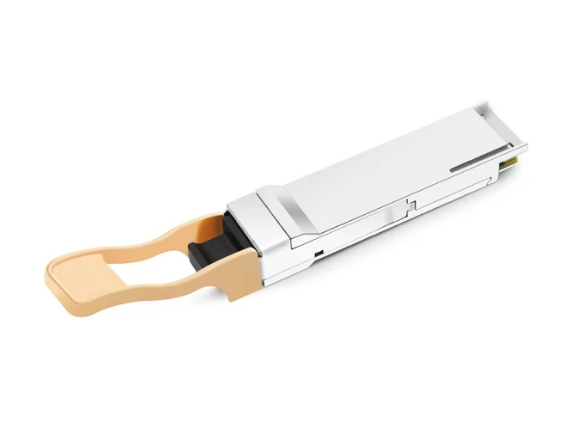
Compatibility with 200GBASE-SR4 Standards
The MMA1T00-HS Optical Transceiver Module demonstrates a high degree of compatibility with the 200GBASE-SR4 standards, which are critical for high-speed data transfer, and considering all the above, it’s easy to anticipate that it can be easily amalgamated into advanced network architecture. Further down the parts of this document emphasize certain characteristics related to compatibility in greater detail:
- Multimode Fiber Compatibility: The module supports both OM3 and OM4 multimodal fiber, enabling effective transmission distances over short cobertura and making data center environments more reliable.
- Data Rate Support: As per the requirements of the 200GBASE-SR4 it is equipped to process twos hundred Gbps bandwidth, supporting those applications which require high data transfer.
- Wavelength Specifications: With a wavelength of 850 nm the module supports optimal and efficient performance without a challenge to the 200GBASE-SR4 specifications, it is ideal for short communications as well.
- Connector Type: This module is also compatible with the 200GBASE-SR4 standard as it utilizes MTP/MPO connectors that allow connections to be easy and uncomplicated thereby saving time in installation.
- Environmental Standards: It meets the environmental specifications that are paramount in the industry so that efficiency across a wide scope of temperature range is enjoyed and guarantees durability across different deployment situations.
These compatibility features clearly show that the MMA1T00-HS Optical Transceiver Module is capable of working in high-speed optical networks that comply with 200GBASE-SR4 standards.
Infiniband HDR Compliance and Interoperability
The supported data rates of up to 200 Gbps give Infiniband HDR (High Data Rate) compliance the potential to provide high-performance connectivity for data centers and HPC (High-Performance Computing) environments so as to guarantee high connectivity performance. The design of the technology seeks to reduce latencies while enhancing throughput, which are key traits for tough applications. As per prominent stakeholders, Infiniband HDR works with already available network equipment, and hence, the performance of a system can be enhanced incrementally instead of complete upgrading of infrastructure. Its interoperability is compliant with the standards of the InfiniBand Trade Association, ensuring that it works well with other networking solutions and, at the same time, an efficient, adaptable, and extensible architecture is preserved to accommodate future connectivity needs.
Comparative Analysis with Other NVIDIA Modules
In comparison to other modules developed by NVIDIA, the MMA1T00-HS Optical Transceiver Module is distinct from others in its capability of meeting the 200GBASE-SR4 standard and the Infiniband HDR that are purposed towards high-performance networking environments. According to the latest attribution from different industry publishers, the features mentioned above enhance competitive advantage characterized by the backward and forward compatibility with the existing infrastructure of networking. Other NVIDIA modules may not have such compliance characteristics, which may improve their applicability in certain high-speed data center applications which is provided by this specific compliance feature. Moreover, recent benchmarking results also demonstrate the lower latency of MMA1T00-HS, which is essential in supporting high bandwidth workloads typical in an HPC environment, thus strengthening its position as the preferred Optical networking solution from NVIDIA’s offers.
Where to Find Reliable Sellers for MMA1T00-HS?
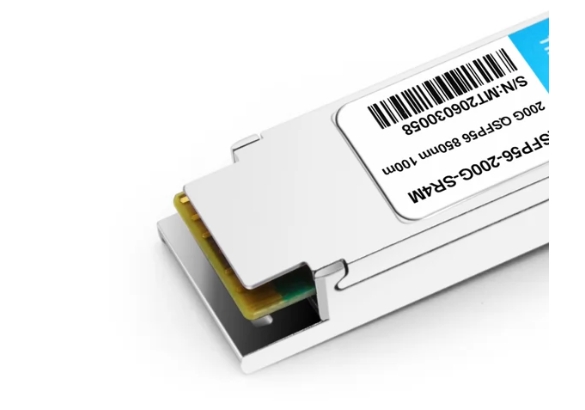
Factors to Consider When Choosing a Seller
When looking for the MMA1T00-HS Optical Transceiver Module, one has to check the background and standing of the seller alongside warranty features and any industry-related certificates they might have. Sellers of good repute will sell detailed information about their products and interact with customers to assist with any technical-related questions. Also, closely examining warranty policies is important because they guarantee features such as defect elimination and quality change. Compliance with international standards also comes into play in the seller assessment as it helps determine the genuineness of the module and its performance. Placing Google ratings and reviews in consideration can provide more details in determining how satisfied customers are and how reliable the seller is in completing the transactions which goes a long way in helping make the right purchase.
Popular Platforms and Retailers for MMA1T00-HS
Acquiring the MMA1T00-HS Optical Transceiver Module from reputable websites guarantees not only the quality of the goods but also great support afterward. Online shoppers frequent sites such as Amazon and Newegg because these have almost every kind of product at an affordable price, as well as customer sentiments on every item, which indicate how the item fares in practical use. Specialized retailers of other IT accessories, such as CDW and TigerDirect, also stand out due to their huge stock and strong emphasis on enterprise customers. In addition, these sites usually have descriptions of the required documents accompanying the goods for sale, assisting clients in making an informed purchase decision. Reports of the industry and responses from clients indicate that these sites tend to remain stable and productive in their operations, making the purchase of MMA1T00-HS very safe and appealing.
What Is the Warranty and Support for MMA1T00-HS?
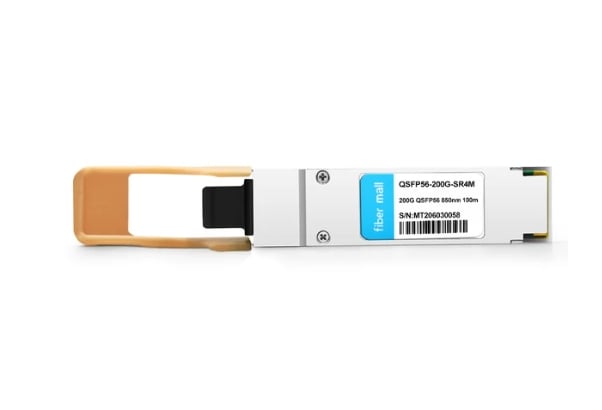
Understanding Warranty Terms and Conditions
The MMA1T00-HS Optical Transceiver Module is provided with a normal manufacturers warranty covering defects in materials and workmanship for a time limit as set forth by the seller’s requirements, from one to three years.. A check of Google reviews can also serve as the verification of customers’ experience regarding claims under the warranty, in this case, showing the speed and adequacy of the seller’s support. For warranty claims, in general, a purchase receipt is needed, and in some cases, a return authorization is required from the seller. Also, assistance in the form of norms includes explanatory assistance through customer service, as well as replacement and/or repair of the module, if needed, for ongoing satisfaction and reliability of the product.
Support and Service Options for Mellanox Transceivers
Transceivers such as the MMA1T00-HS reportedly have support and service provided by Mellanox. A comprehensive description of this, along with contact information, can be found across several websites, notably the official websites of NVIDIA, TechDirect, and Spiceworks. Such approaches ensure that customers are provided with sufficient information regarding the product and render technical service assistance. Customer Service is normally supported by an efficient technical service group via telephone and e-mail, which allows quick resolution of technical complaints. Also, users are assisted by community forums where problems can be posted, and other users can provide feedback or answers. Also, the availability of firmware updates and other documentation on these sites seems to assist in correctly functioning and boosting the reliability of Mellanox transceivers.
Why Choose MMA1T00-HS for Optical Networking Needs?
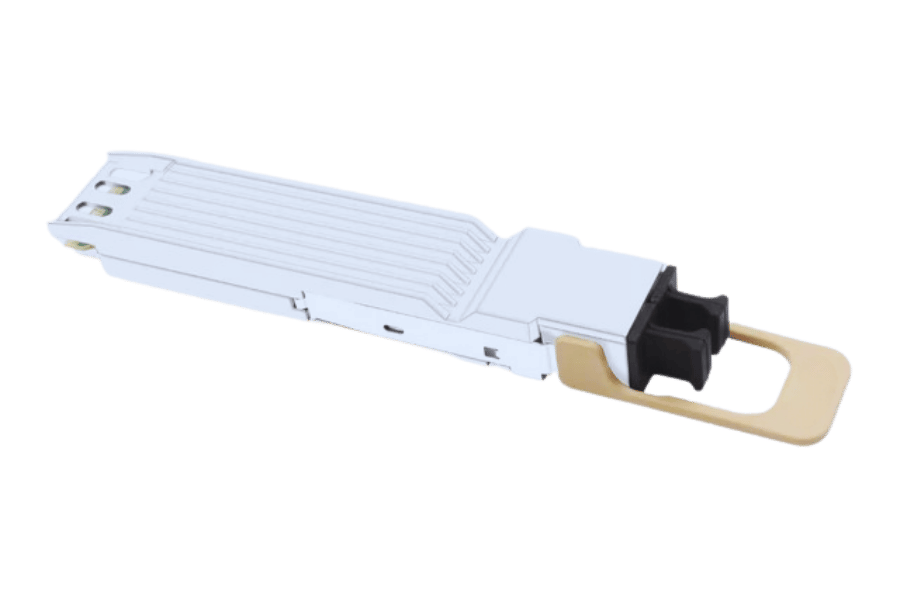
Benefits of Integrated Circuit Technology
The following are the key advantages of using integrated circuit technology in the optical networking fields, especially for devices such as Mellanox transceivers:
- Miniaturization: Integrated circuits help in the miniaturization of electronic components which reduce the bulkiness of transceivers, this is critical in environments where there is high networking density.
- Enhanced Performance: Integration of high-speed electronic components that enable rapid data processing and transmission, ICs perform the critical role of enhancing the functionality of the devices in a bandwidth demanding system.
- Energy Efficiency: Technology of integrated circuits ensures efficiency in energy issues, this reduces the energy level needed to operate the transceivers and other equipment which is fetchable in eco-friendly and green networking systems.
- Reliability and Durability: The integration of circuits ensures a higher reliability factor because it does away with most mechanical components and has a durable build which translates to extended periods of use and decreased upkeep.
- Cost-Effectiveness: There is lower production cost of devices systems due to the mass production of integrated circuits hence catering for low cost high performing networking solutions.
- Scalability: With the advancements in technology and data transfer increases the demand for integration goes higher easily adaption to further integrated circuits can help without commitments to major changes.
- Integration Capabilities: Integrating circuits further helps in amalgamating various functional elements on one chip hence network devices for optics become efficient and less complex.
These advantages highlight the importance of integrated circuit technology in the design and development of optical networking solutions, making them durable, effective, and inexpensive options for contemporary digital communication facilities.
Advantages of Using MMA1T00-HS in High-Density Networks
The MMA1T00-HS has a number of features designed for high-density networking environments. To start with, its size allows a more efficient space utilization in the configuration of network hardware since a greater number of ports can be incorporated into the network without degradation of the network performance. Also, high data rates are critical in moving heavy data traffic which is common in densely populated networks. This is important in transmitting data with the least network delay. Lower operational costs are also a benefit of the transceiver since it is more energy efficient, which means it uses less power and still does a lot of work. Because of these characteristics, the MMA1T00-HS is a practical and effective solution for the current era of networking.
Cost-Effectiveness and Efficiency in Data Centers
The assessment concerning cost-effectiveness and efficiency has a number of considerations, such as energy efficiency, equipment efficiency, and even space efficiency. Lenovo was among the first to pioneer this evolution by utilizing innovative cooling systems and AI-enabled energy management. Also noted in the Google report is that the introduction of machine learning for cooling applications in favor of energy efficiency has brought their data centers up to 50% lower energy use than the industry standard. This means that the revenues from operations can practically increase significantly. The relocation of modular data center facilities also provides a manageable solution in terms of space and power in relation to demand. Further, the use of renewable energy not only secures cost-effective solutions with respect to future energy costs but also enhances environmental sustainability. All these innovations serve to hyperfocus a central argument around data center operations, which is the need for adequate technological capability to ensure that there are optimal cost determinants alongside maximal output.
Reference Sources
Frequently Asked Questions (FAQs)
Q: What does the Mellanox® MMA1T00-HS transceiver do?
A: The Mellanox® MMA1T00-HS is a optical transceiver module that is HDR QSFP56 and it is meant for data communication networks that require high speed data dispersion. It is equipped with an ICS in it so as to ensure efficiency and reliable connection.
Q: What are the specifications the MMA1T00-HS compatible with 200GBASE-SR4 transceiver has to offer?
A: The MMA1T00-HS transceiver is 4 channel where it functions at 850nm and has a distance coverage of about 100 meters when used with OM4 fiber mm. The device will make use of ethernet and infiniband connections.
Q: Regarding increased temperature in the QSFP56 850nm, how does the transceiver affect optical transmission and receive?
A: So as to ensure quality operation, the MMA1T00-HS transceiver is able to receive a certain temperature range to allow operation through the warning level, alarm level and working level that monitors its temperature diagnostics and ensure efficient running .
Q: Can the Mellanox® MMA1T00-HS be connected to MPO connectors?
A: Yes, the MMA1T00-HS transceiver is designed for burr-free aids to develop the moving MPO connectors. This enables less restriction on cables and stronger connections.
Q: What types of cables are used with the MMA1T00-HS transceiver?
A: The batteries can be used with hardness plastic materials and it is designed in such a way that transmits signals in a wavelength towards the5520nm unit, which is useful in combating distance problems.
Q: Is the module MMA1T00-HS equipped with digital monitoring and capable of being diagnosed?
A: The transceiver indeed is equipped with digital monitoring capabilities for supply voltage, temperature, laser bias current and other relevant parameters critical to ensure successful operation.
Q: What value is attached to the 200-gigabit capability of the MMA1T00-HS transceiver?
A: The 200 gigabit capacity makes it possible for the MMA1T00-HS to be used in locations where there is a lot of data to be transmitted in a short period of time such as data centers and high performance computers where the relaying and reception of signals needs to be done quickly and in a reliable manner.
Q: Will the module apply any technology that will make it deliver a greater performance?
A: The module employs high throughput and low latency integrated circuit technology and optical components to ensure the requirements of the network are met in a timely manner.
Q: How does operating different levels of receiving signals with associated warning and alarm thresholds work?
A: The presence of automatic and low power warning enabling levels associated with receive thresholds towards alarming contact to network administrators improves the management of this transceiver ensuring reliable operations.
Related Products:
Related posts:
- QSFP-DD vs OSFP vs QSFP56 vs QSFP: Advantages and Challenges
- 40G QSFP BIDI vs 40G QSFP SR4 vs 40G QSFP UNIV
- Exploring the World of QSFP Transceivers: Cisco Compatible Solutions for MMF Optical Networks
- The Ultimate Guide to Fortinet Compatible Transceivers: Understanding Fortinet FN-TRAN-SFP+SR and More

